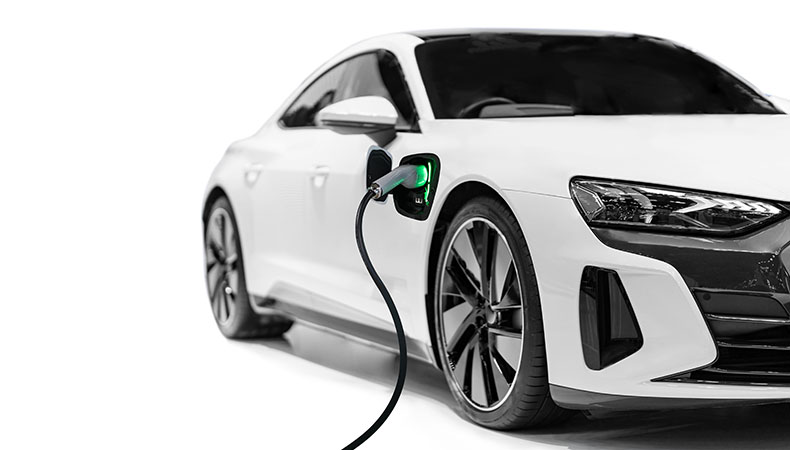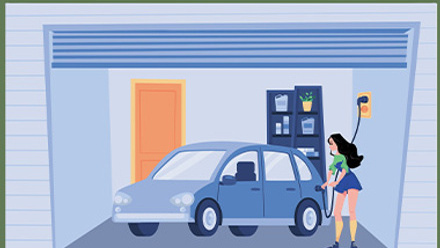Salary sacrifice schemes are helping employees shift gear and make savings
The fifth World Electric Vehicle Day was on September 9 and marked the biggest e-mobility celebration of the year, bringing together individuals, employers, policymakers and thought leaders, yet there’s something else that needs a lot of recognition.
New data shows us that salary sacrifice has led to thousands of employees driving an EV through their employers’ car scheme.
Overall fleet numbers for salary sacrifice vehicles have rocketed by 63% year on year meaning over 80,000 UK employees are now driving electric cars via this type of scheme.
The figures, from the British Vehicle Rental and Leasing Association (BVRLA) and its July Leasing Outlook report, show that salary sacrifice is the ‘star performer’with a backdrop of a cost of living crisis.
It means that employers - by offering this free-to-set-up and easy to manage employee benefit - are helping employees manage their vehicle expenditure highly efficiently with a fixed monthly amount, including maintenance and insurance.
Employers are also able to gain National Insurance savings when employees take Ultra Low Emission Vehicles (ULEV).
Compelling results
It turns out that this is exactly what employees want. As much as many want to support the environment by driving an electric vehicle, top of mind is reduced and managed costs. Salary sacrifice is a major contributor to this.
Tusker has just published its annual Driver Survey which shows just what nearly 6,000 UK EV and non-EV drivers are thinking. The results are compelling.
For instance, almost a third of EV drivers (32%) say financial considerations are the main reason they drive an EV. For them, it’s the savings in income tax and National Insurance through salary sacrifice that was the main incentive to switch to an EV.
Just over a quarter (27%) saw savings on fuel as a main factor while 22% said the environment was their main reason for switching to EV.
Just 3.5% of drivers said they will go back to a petrol or diesel car, unsurprising when 94% of EV drivers say they’re satisfied with their car, 66% of those saying they’re very satisfied and 96% said their cars are reliable or very reliable.
Switching at the right time
Among drivers who don’t currently have a car on the Tusker scheme, and don’t have an EV, 69% said they plan to switch in the next four years. Four out of ten also said they’ll switch to EV (up from 35% in 2023). While 38% said they’d choose an EV if they were to change their car tomorrow.
Offering choice is essential, not least as 22% of the respondents to the survey said they expect to get a hybrid or plug-in hybrid. And 10% intend to get a petrol car.
This is important for a variety of reasons, but especially for people who do not have the ability to keep a charging point outside their home, or near where they park their car.
Supportive to employees’ financial incentive is that HMRC has announced that Benefit in Kind (BiK) tax rates for company car drivers would be linked to a vehicle’s carbon emissions.
These are set until 2028, providing a clear line of sight on company car tax rates for the medium term.
Understanding concerns
Non-EV drivers, however, do have some concerns and may worry about the distance an EV can travel before needing to be recharged, either at home or via a public charge point.
Eight in 10 non EV drivers in the Tusker report said they’d need a range of at least 250 miles on a single charge for them to feel confident in switching.
To help address this ‘range anxiety’, drivers need to be made aware of the cars available to them, as for example, the current average range of an EV in the UK is just over 270 miles per charge, although some of the latest models are capable of reaching over 400 miles.
With 72% of drivers typically covering less than 200 miles a week, this means a charge is needed just once a week at most and so the concerns are largely unfounded.
Others are concerned about the adequacy of the EV public charging network.
In fact, this is the most common concern about switching to an electric car, even though almost 6,000 new charge points were installed in the first three months of 2024 alone, making the current number more than 60,000.
The more confidence drivers have in the availability of charge points and the range of EVs, the less they are likely to worry about running out of charge on longer journeys.
Role of employers
There’s no doubt that drivers are increasingly looking for an EV as their next car.
What is also undeniable is the role that employers, salary sacrifice schemes and significant tax benefits play in supporting EV take up.
An employer car scheme too, gets around another major issue for buyers - the perceived high purchase cost.
This doesn’t concern employees who choose an EV through a workplace salary sacrifice scheme as they aren’t required to pay for their car or a deposit upfront.
Here’s to celebrating all things EV; the employers, the employees and progress being made to support the environment.
Supplied by REBA Associate Member, Tusker
Tusker is the UK’s leader in salary sacrifice cars. Part of Lloyds Banking Group, it has more than 15 years’ experience in offering an affordable way for employees to drive a new, fully insured, and maintained car. Its scheme, which is available to over 1.8 million UK employees, offers a range of options, from pure electric cars to hybrids and even traditional petrol and diesel vehicles. It provides a tailored scheme for organisations’ individual needs.








